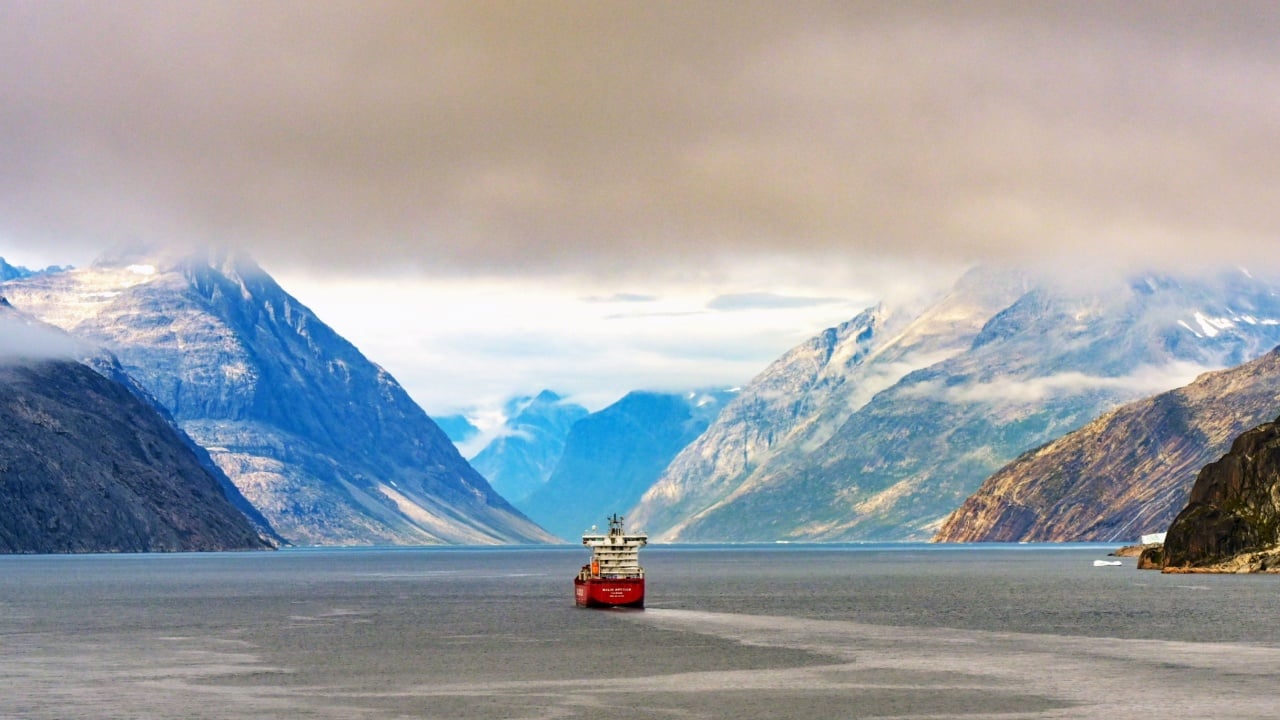
It’s Time for a U.S.-Greenland Free Association Agreement
American security interests and Greenland’s economic aspirations necessitate an institutional partnership between the two. Greenland, an autonomous territory of Denmark, is part of North America in terms of aspiration and geography. It is high time Greenland’s position in North American orbit was cemented. As the world’s largest island atop the North Atlantic, it is an indispensable U.S. ally in the most proximate theatre between the United States and its NATO allies and the Russia-China authoritarian advance. American investments and markets are essential catalysts to turbocharge Greenland’s economic growth and prosperity and ensure its continued alignment with NATO as its place within the Kingdom of Denmark evolves in the years ahead. All future U.S.-Greenland ties should comport with the full awareness and engagement of Denmark in light of its sovereignty over Greenland and strong, long-standing alliance with the United States. The United States and Greenland should explore two proven structures to strengthen their institutional partnership in the long run. First is a U.S.-Greenland Compact of Free Association, and second is incorporating Greenland into the U.S.-Mexico-Canada Agreement (USMCA).
Greenland’s critical role in American security is equal to, if not greater than, that of the Pacific Freely Associated States of Palau, the Marshall Islands, and the Federated States of Micronesia. These islands entered into a Compact of Free Association (COFA) with Washington, conveying to the latter exclusive military access to their territory and, critically, the right to deny such access to other powers. In return, the “freely associated” states receive substantial economic development assistance and investment from the United States. The U.S.-FAS COFAs represent a mutually beneficial agreement bolstering the national interests of all parties. A similar undertaking between the United States and Greenland holds high promise for strategically aligning the critical players in the North Atlantic. As Greenland’s relationship with Denmark continues to evolve, with eventual independence explicitly mentioned in Greenland’s first National Security Strategy, such an arrangement benefits Copenhagen, as well.
Alaska and Greenland present two indispensable pillars of American security interests in the Arctic, with both experiencing growing and coordinated malign activities by Moscow and Beijing. The House China Committee recently asked the Secretaries of Defense and State to evaluate and address Chinese dual-purpose research and surveillance activities at research stations in Iceland and Norway’s Svalbard. The world’s largest island also presents the United States with an essential source of critical minerals. America’s security umbrella, investments, and markets hold the optimal key for the responsible and sustainable development of Greenland’s natural resource wealth, including fisheries, minerals, and tourism.
Indigenous Greenlanders have a proud tradition of self-reliance and deep cultural ties with First Nation peoples in Alaska and Canada. Greenland’s first ten-year foreign, security, and defense policy presents a coherent strategy to address its evolving place within Denmark and its aspirations for increased autonomy. “With the right of self-determination and the goal of independence,” the strategy prioritizes increased trade with near neighbors as the path to a self-sustaining economy and expansion of the Defense Agreement with the United States.
Since World War II, Greenland has gradually been moving closer to North America, economically and politically. With the German occupation of Denmark, the island relied on American security and economic assistance. During the Cold War, the island was a critical site for nuclear early warning systems over the Arctic and for observation and control of the narrow passage used by the Soviet Navy to transit the Arctic and Atlantic Oceans. In 1951, Washington negotiated a permanent airbase in Thule. Greenland’s autonomous status has steadily expanded since the middle of the twentieth century, with the island opting out of the European Economic Community and exercising greater autonomy in its foreign policy.
The benefits of a COFA to its signatories include the opportunity for their residents to reside and work in the United States and be eligible for Federal programs and services. This includes serving in the military, which Palauans, Marshallese, and Micronesians do at high rates. Additionally, the COFA provides economic assistance for fifteen or twenty years, including the establishment of an economic trust fund and sectoral assistance for education, health, the environment, public sector capacity-building, private sector development, and infrastructure. The United States is obligated to defend the Compact countries against outside coercion or aggression and allows the stationing of U.S. military personnel.
Similarly, Greenland’s population of 57,000 will greatly benefit from joining the USMCA. The island’s abundant fish harvest will find a ready market in the nearby neighborhood and attract greater investments in fish processing on the island. Importantly, it will unlock investments for responsible development of the island’s rich mineral deposits.
Such a comprehensive economic and security arrangement with Greenland is the right mechanism at a time when Russian and Chinese adventurism in the High North is growing, and the United States requires a stable presence at the top of the North Atlantic. The next administration would do well to begin these important conversations in earnest.
Kaush Arha is President of the Free & Open Indo-Pacific Forum and a nonresident senior fellow at the Atlantic Council and the Krach Institute for Tech Diplomacy at Purdue.
Alexander Gray served as Deputy Assistant to the President and Chief of Staff of the White House National Security Council (NSC) from 2019 to 2021.
Tom Dans is a former Commissioner of the U.S. Arctic Research Commission and former Counselor to the Under Secretary for International Affairs at the U.S. Treasury.
Image: Ceri Breeze / Shutterstock.com.